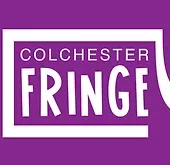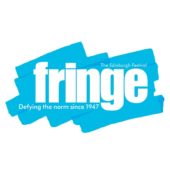Edinburgh Fringe 2025
The Horse of Jenin
Alaa Shehada and Troupe Courage

Genre: Autobiography, Comedic, Mask, Solo Performance, Theatrical Storytelling
Venue: Pleasance Dome
Festival: Edinburgh Fringe
Low Down
The Horse of Jenin is a brilliantly told tale of a man growing up on the West Bank in Palestine. Writer and comedian Alaa Shehada effortlessly strikes a balance between humour and politics while deeply engaging the audience with his charm and skill as a performer.
Review
A combination of standup and storytelling using masks, Shehada takes us though his experiences growing up in Jenin while inhabiting various real life characters.
He starts slowly, interacting with individuals in the audience and talking to us a whole. He asks us how many are here because of the recent five star review in The Guardian and playfully rebukes us for not even knowing his name. He draws attention to his identity and its political connotations, making it clear this is not going to be a show about Palestine per se but that it is based there because that is where he is from and it is impossible to avoid its connotations. By getting this out of the way we are able to relax into the magical storytelling to come.
Then the lights dim and center in on him, rousing Palestinian music softly plays as he takes a mask and shawl from a small table and turns his back to us, transforming himself into his grandfather, the first of numerous characters he inhabits through mask and body. This is a powerful moment. He takes his time, seeming to shapeshift before he turns and wordlessly, hesitantly, searches out the audience in a dark orange wooden mask holding sharp, high set features with Shehada’s wide moonlike eyes showing through.
All the beautifully made masks are in the commedia del’arte style, allowing him to fill out the bottom half with his own expressive feaures. The two main characters are his younger self and his best friend Ahmed. He immediately suggests their bond is inseparable with an anecdote about their birth. We are also introduced to the comical mayor of Jenin, comparing their healthy weights as babies.
The story centers around the two best friends growing up in Jenin in the 1990’s up to the second intifada, the Palestinian uprising against Israel, from 2000-2005. The horse of the title is firstly a small model horse given to Shehada by his grandfather – ‘a horse, not a donkey’. This metaphor is enlarged when a ‘German artist’ comes to town and makes a giant horse from the scrap metal and rubbish that make up the ruins of the city’s environs and is then taken on a journey though Palestine on an open topped truck.
This horse becomes an evermore powerful symbol, inspiring Shehada to fulfill his dream of becoming a performer, as the two friends play under its frame and chase it down the road, creating a poignant framework for what is to come. His destiny is aided when a wholesome American theatre company come to the city.
Shehada has the audience in the palm of his hand from the very first moment. His skill as an orator is infectious on many levels: He is charming, funny, self-deprecating, everyone is included in his ambit. He also thrillingly creates the world he tells us of around the horse. Special mention should go to the company he created this with in the Netherlands where he lives: Troupe Courage, with directors Katrien van Beurden and Thomas van Ouwerkerk.
As the story progresses things become more serious, but he handles them with a light touch. He tells us of his comedy sets in Jenin, he turns us into a different audience from those days, the lights are turned off and we become intimately included in his painful past, a poignant moment that is heightened for us when a tragic event occurs in his life.
There is of course pathos here, but it is largely a story about hope and being light hearted and not forgetting your inner child in a place where terrible, life changing events have become the norm. He only mentions the present situation in Palestine in passing. It is not about that. At the end, in 2024, the horse if taken away by the Israelis, suggesting even the idea of love is being shorn from this land, just another attempt at dehumanisation. A short film of the horse is shown to us at the end and he comes back on to tell us that he doesn’t know where the horse is now but is all of ours now.
He doesn’t want sadness to rule his people, his humorous real life characters show that: the pompous mayor, his overly protective mother, his portly friend Ahmed who follows him everywhere. And the stories are full of generosity of spirit.
This would be a brilliant show without the masks but with them it is outstanding. With the help of deeply set mood lighting of oranges and reds, and beautifully transformative music, these hugely expressive masks greatly elevate this production. They are not beautiful, but deeply expressive. They have a lost and haunted look to them, and Shehada in turn heightens or lightens this inherent expression with his stance and hand gestures.
His constant breaking and un-breaking of the fourth wall both includes and distances us at key moments, he even jokes that ‘only he is allowed to break it’ when we answer him when he is asking something rhetorically. We are both observers and listeners, his friends and his family.
This is a deeply heartfelt and powerful piece of work. There was never a remotely dull moment for me, and I got the feeling that went for everyone there, which is very difficult to do for 1 hour and 20 minutes in a theater space, but he succeeds. Go and see this wherever it is being shown.




























